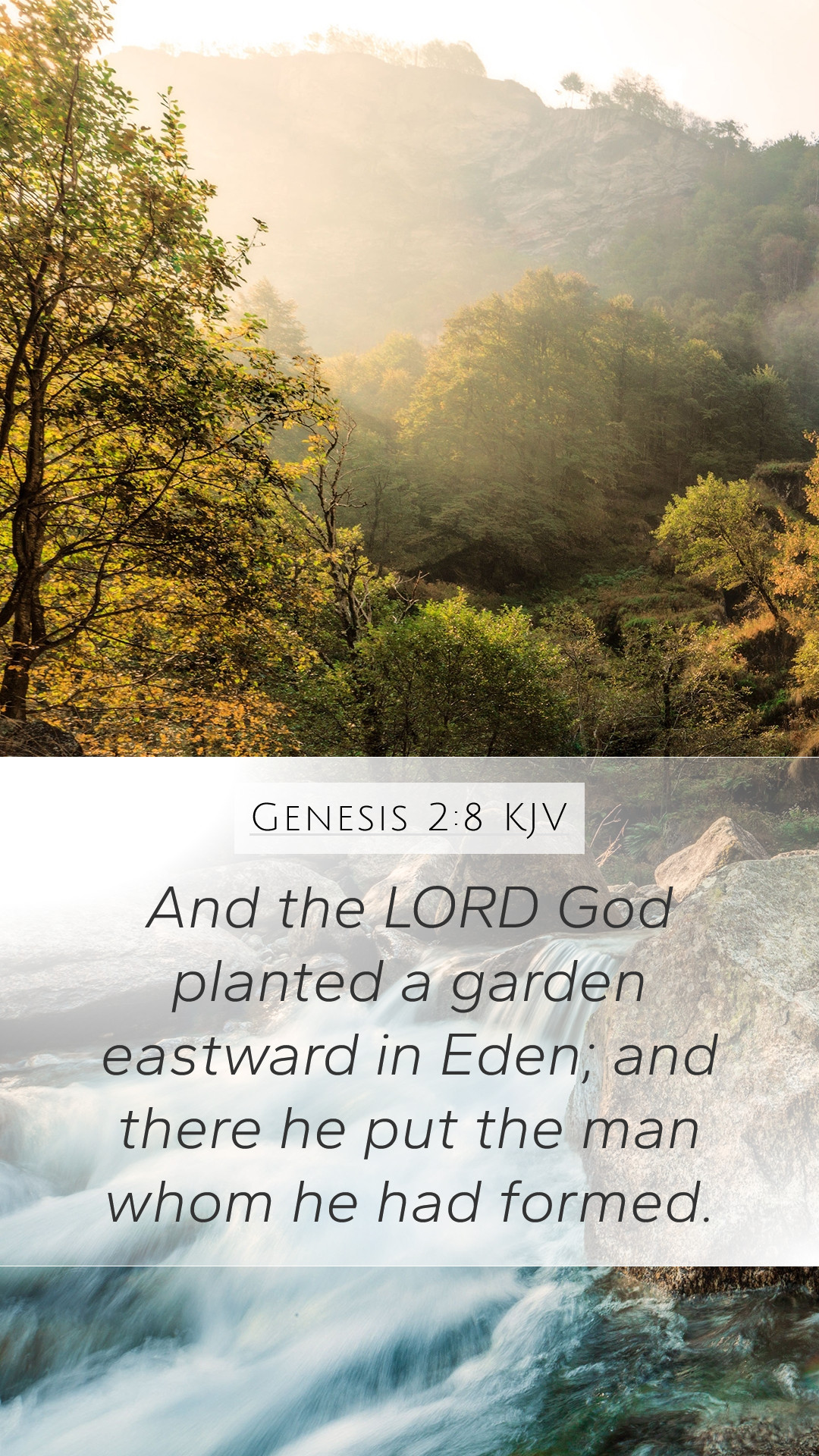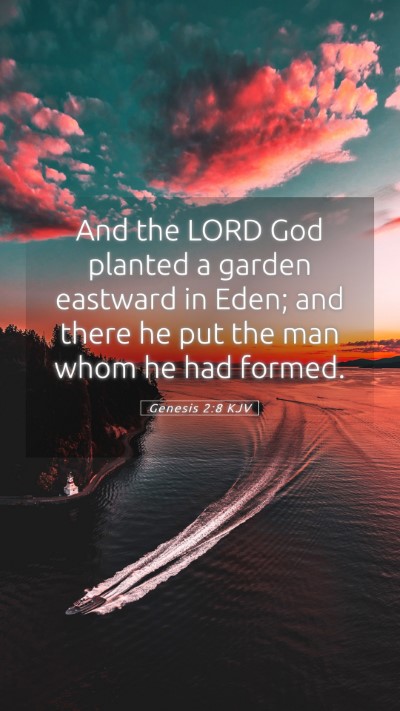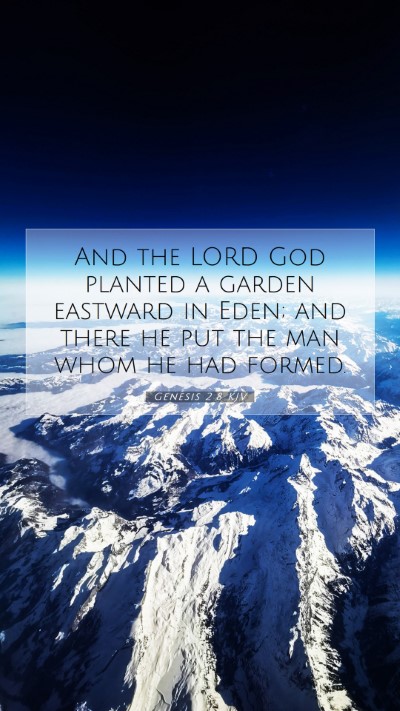Understanding Genesis 2:8
Bible Verse: Genesis 2:8 - "And the Lord God planted a garden eastward in Eden; and there he put the man whom he had formed."
Meaning of Genesis 2:8
This verse signifies a pivotal moment in the biblical narrative where God actively creates a paradise, establishing a place for humanity. The act of planting a garden in Eden illustrates God’s intention to provide for His creation whilst demonstrating His divine capability and care.
- Divine Providence: God’s act of planting a garden highlights His role as provider. Commentators emphasize that Eden is a direct expression of God’s goodness and the abundance He offers.
- Symbol of Paradise: The garden of Eden represents an ideal state of existence, a place of peace and harmony—both with God and among creation. Matthew Henry notes that this signifies a perfect union between the Creator and His creation.
- Human Purpose: The placement of man in the garden conveys purpose. God creates humanity with a role to fulfill, indicating that human beings are meant to cultivate and steward the earth, as noted by Albert Barnes.
- Geographical Significance: The mention of "eastward" positions Eden within a specific context, lending insight into the importance of land and geography in Scripture, as explained by Adam Clarke.
Scripture Analysis
The analysis of Genesis 2:8 provides a profound understanding of God's intentions. The very act of planting the garden serves multiple purposes:
- Literal Understanding: According to Albert Barnes, the 'garden' can be interpreted literally as a lush habitat for humanity's dwelling.
- Spiritual Insight: Adam Clarke suggests that the garden symbolizes spiritual nourishment—God providing a place for humanity to dwell in communion with Him.
- Typological Considerations: This garden can also be viewed as a typological foreshadowing of the eternal paradise promised to believers, linking Genesis with Revelation.
Bible Study Insights
Engaging with Genesis 2:8 invites deeper reflection on theological implications, shaping our understanding of God and humanity's relationship:
- Intimacy with God: The garden setting underscores the intimacy that God desires with mankind, as observed in the presence of God among His creation.
- Human Responsibility: Genesis 2:8 implies that humanity is entrusted with the care of creation, serving as stewards of what God has made.
- The Nature of Creation: This verse provides insights into the goodness of God’s creation, where everything is deemed 'very good' (Genesis 1:31), underscoring the purity of the environment God established.
Bible Verse Commentary
Examining Genesis 2:8 through the lens of public domain commentaries enhances our comprehension:
- Matthew Henry: He interprets this act as foundational for understanding God’s relationship with creation and the importance of man's role within it.
- Albert Barnes: His commentary emphasizes the tranquility and beauty of Eden as an ideal location for humanity to thrive under divine guidance.
- Adam Clarke: Highlights the geographical and spiritual significance of Eden, linking it to God’s kingdom.
Application of Genesis 2:8
In applying the teachings from Genesis 2:8 to daily life, we can identify several key areas:
- Purpose of Life: Understanding our role as caretakers of God's creation can lead to greater environmental stewardship.
- Relationship with God: The intimate setting of the garden encourages believers to cultivate their personal relationship with God, fostering a place for spiritual growth.
- Biblical Foundations: This verse serves as a reminder of God’s providence and design, encouraging believers to trust in His plans for them.
Cross References
The following scripture references support understanding of Genesis 2:8:
- Genesis 1:31: "And God saw everything that he had made, and, behold, it was very good." - Reflects the goodness of creation.
- Genesis 2:15: "And the Lord God took the man, and put him into the garden of Eden to dress it and to keep it." - Highlights humanity's responsibilities.
- Revelation 21:2: "And I John saw the holy city, new Jerusalem, coming down from God out of heaven, prepared as a bride adorned for her husband." - Connects with the theme of paradise.
- Psalms 104:16: "The trees of the Lord are full of sap; the cedars of Lebanon, which he hath planted." - Reinforces God's role as a caretaker of creation.
Conclusion
Genesis 2:8 serves as a rich verse for exploration, providing insights into the nature of God, humanity's purpose, and the beauty of creation. Through this verse, we gain a deeper understanding of our responsibilities and the spiritual nourishment available to us through our relationship with the Creator.


